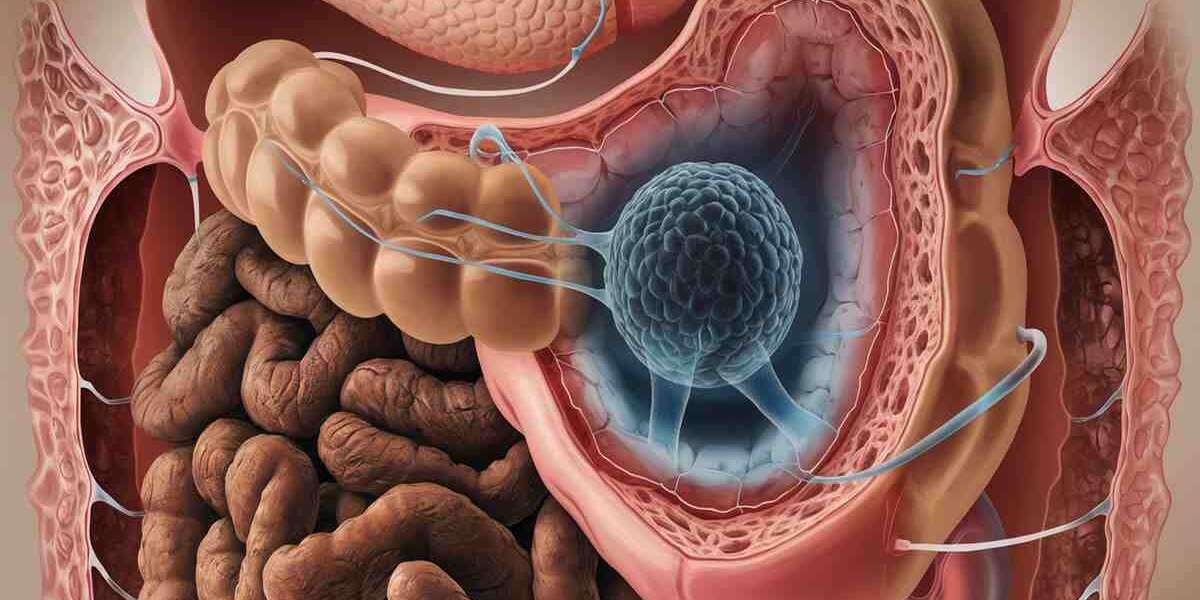Low potassium, or hypokalemia, is a condition where potassium levels in the body fall below the required range. Potassium is essential for various bodily functions, including maintaining normal cell function, muscle contraction, and nerve signals. A deficiency in potassium can lead to symptoms like muscle cramps, irregular heartbeat, fatigue, and weakness. Many people wonder whether low potassium could be a sign of something more serious, such as cancer. This article delves into the question, "Is low potassium a sign of cancer?" and explores the potential connections between hypokalemia and cancer.
Understanding the Importance of Potassium
Potassium is an important electrolyte that helps the body regulate various processes, especially nerve and muscle function. It plays a critical role in maintaining a stable heart rhythm and ensuring that muscles contract properly. Low potassium levels can disrupt these functions, leading to complications like weakness, irregular heartbeat, and even cardiac arrest in severe cases. Potassium also works closely with sodium to balance fluids in the body, making it an essential element in overall bodily health. Because of its crucial role, maintaining adequate potassium levels is vital for preventing significant health issues.
Can Low Potassium Be a Sign of Cancer?
A common question that arises is, "Is low potassium a sign of cancer?" While low potassium itself is not a definitive indicator of cancer, it can sometimes be associated with cancerous conditions, particularly in cancers affecting the kidneys, adrenal glands, or digestive system. Tumors in these areas can cause electrolyte imbalances, including low potassium. For example, kidney cancer can affect how the kidneys regulate electrolytes, leading to hypokalemia. However, low potassium is usually a result of other health conditions or treatments rather than a direct sign of cancer itself. It is important to investigate the underlying cause to determine if it is related to cancer or another health issue.
Potential Causes of Low Potassium
Low potassium levels can occur for many reasons, with cancer being just one possible factor. Some of the most common causes of hypokalemia include poor dietary intake, gastrointestinal issues, and medication use. People who don’t consume enough potassium-rich foods, such as fruits and vegetables, may experience low potassium. Additionally, chronic vomiting or diarrhea, often seen in people undergoing cancer treatments, can lead to potassium depletion. Certain medications, such as diuretics and chemotherapy drugs, can also cause the body to lose potassium. These factors highlight that while low potassium can occur in cancer patients, it is not necessarily a direct sign of cancer.
How Cancer Can Affect Potassium Levels
Cancer can sometimes indirectly cause low potassium, particularly when tumors disrupt normal organ function. For example, cancers that affect the kidneys or adrenal glands can interfere with how the body processes potassium. Kidney cancer, in particular, can impair the kidney's ability to maintain electrolyte balance. Similarly, adrenal tumors can affect hormone production, leading to issues with potassium regulation. Cancers of the digestive tract, such as colon or stomach cancer, can also cause hypokalemia by interfering with the body’s ability to absorb nutrients, including potassium. These indirect effects demonstrate how cancer can sometimes lead to low potassium levels.
Symptoms of Low Potassium
Low potassium presents with a range of symptoms, some of which can be quite serious. People with low potassium may experience fatigue, muscle cramps, and weakness. More severe cases of hypokalemia can lead to irregular heartbeats, known as arrhythmias, which can be life-threatening if left untreated. Other signs include nausea, constipation, and even paralysis in extreme situations. For those wondering "Is low potassium a sign of cancer?" it's essential to remember that these symptoms can be related to various health issues, not just cancer. Therefore, seeking medical advice is crucial when experiencing symptoms of hypokalemia.
Diagnosing the Cause of Low Potassium
If you are experiencing symptoms of low potassium, a healthcare professional will likely perform a blood test to confirm the diagnosis. Once low potassium is detected, the next step is to determine the underlying cause. Doctors will evaluate your medical history, diet, and any medications you are taking. Additional tests, such as kidney function tests or imaging scans, may be ordered if cancer or another serious condition is suspected. These diagnostic tools help in understanding whether low potassium is related to cancer or another cause, ensuring that the correct treatment plan is put in place.
Can Cancer Treatments Cause Low Potassium?
Cancer treatments, such as chemotherapy and radiation, can sometimes cause potassium levels to drop. Chemotherapy, in particular, can lead to gastrointestinal side effects like vomiting or diarrhea, which can result in potassium loss. Radiation therapy, especially when targeting the abdomen, can also disrupt potassium levels. Managing low potassium during cancer treatment is essential to prevent complications. Doctors may recommend potassium supplements or dietary changes to maintain balanced potassium levels throughout the treatment process. In cases where potassium levels drop significantly, intravenous potassium may be administered to quickly restore normal levels.
Managing Low Potassium During Cancer
For cancer patients, maintaining proper potassium levels is crucial to avoid complications during treatment. Patients are often advised to consume potassium-rich foods, such as bananas, avocados, and spinach, to help replenish lost potassium. In more severe cases, potassium supplements may be prescribed. Monitoring electrolyte levels is also vital, as imbalances can lead to more serious health issues, especially during intensive cancer treatments. Working closely with healthcare providers can help ensure that potassium levels remain stable, reducing the risk of complications related to both cancer and its treatment.
Lifestyle Changes to Prevent Low Potassium
There are several ways to help prevent low potassium, particularly for those undergoing cancer treatment. A balanced diet rich in potassium is essential for maintaining healthy levels. Foods such as oranges, potatoes, and leafy greens are excellent sources of potassium and should be included in your daily diet. Staying hydrated is also important, as dehydration can exacerbate potassium imbalances. Regular physical activity can help improve overall health, supporting proper electrolyte regulation. These simple lifestyle changes can play a key role in preventing hypokalemia, whether or not it is related to cancer.
When to Seek Medical Help for Low Potassium
If you are experiencing persistent symptoms of low potassium, such as fatigue, muscle cramps, or irregular heartbeat, it is important to seek medical attention. While low potassium may not always indicate cancer, it can still be a sign of a serious health issue that requires treatment. If you have a history of cancer or are currently undergoing cancer treatment, keeping an eye on your potassium levels is particularly important. Doctors can run tests to determine whether low potassium is related to cancer or another condition and recommend appropriate treatments to restore balance.
Conclusion
In conclusion, while low potassium is not typically a direct sign of cancer, it can be associated with certain cancers, particularly those affecting the kidneys, adrenal glands, and digestive system. The question, "Is low potassium a sign of cancer?" can be complex, as many factors, including diet, medications, and cancer treatments, can contribute to hypokalemia. It’s essential to investigate the root cause of low potassium to ensure proper treatment, whether the deficiency is related to cancer or another health condition. If you are experiencing symptoms of low potassium, consult a healthcare provider to determine the appropriate course of action.









